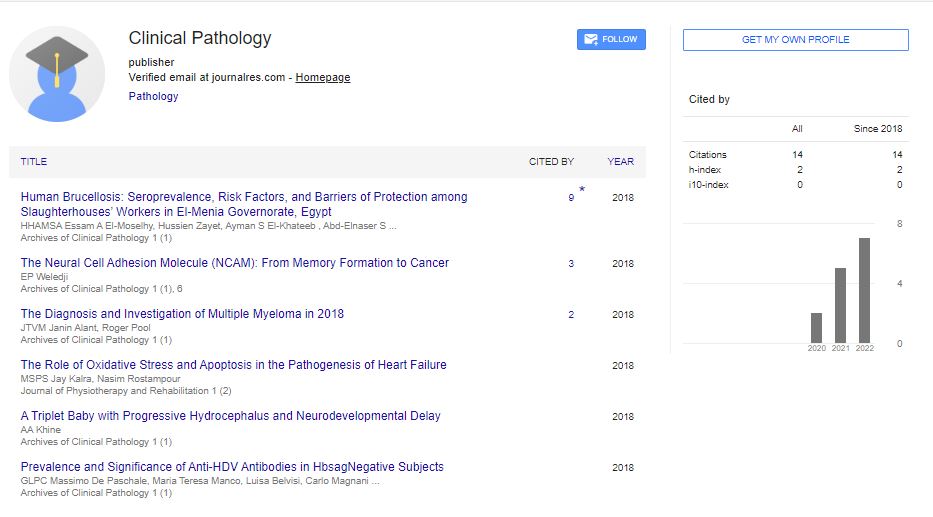Papanicolau society of Cytopathology system of reporting pancreatic FNAC: Cystic and solid lesions
Amritha Malini
Burjeel Medical City, UAE
: Arch Clin Pathol
Abstract
Introduction: Cytopathology has considerable role in the management of cystic lesions of Pancreas. The Papanicolau society of Cytopathology system is used in reporting pancreatic lesions. FNA plays a vital role in the decision making process and for risk assessment in pancreatic lesions, because surgery is optional in some scenarios. Learning Objectives 1. The Papanicolau society of Cytopathology 6 tired classification scheme which includes Non-diagnostic, Negative for malignancy, Atypical Neoplastic, Suspicious for Malignancy , Positive for malignancy categories, the criteria for each category. 2. Diagnosing various Cystic lesions including erous cystadenoma , Mucinous cystadenoma, Pseudocyst, Lymphoepithelail cyst, Enterogenous cyst and Various Solid lesions including Pancreatic ductal Adenocarcinoma Pancreatic Neuroendocrine tumours, Solid Pseudopapillary neoplasm, Acinar cell carcinoma Pancreatioblastoma ,Metastasis, Lymphoreticular Malignancies and Mesenchymal lesions Ancillary methods: 1. Molecular studies on pancreatic cyst fluids KRAS Mutation, GNAS mutation 3p deletion 2. Role of Cyst Fluid Biochemical Analysis CEA, Amylase.
Biography
Amritha Malini is working as Anatomic Pathologist at Burjeel Hospital and Burjeel Medical City Abudhabi. She completed her Pathology residency from Govt. Medical College Kozhikode, Kerala India and worked as Consultant Pathologist and Assistant Professor. She moved to UAE in 2018. She is a diplomate of Royal college of Pathologists UK and member of International Academy of Cytology .She has research articles in cytopathology and haematological malignancies and have given lectures on Gynaecological Malignancies. Her areas of interest and expertise include Oncopathology, Gynaecologic Pathology, Cytopathology and Dermatopathology.
 Spanish
Spanish  Chinese
Chinese  Russian
Russian  German
German  French
French  Japanese
Japanese  Portuguese
Portuguese  Hindi
Hindi 